Could You Be Anemic and Not Know It?
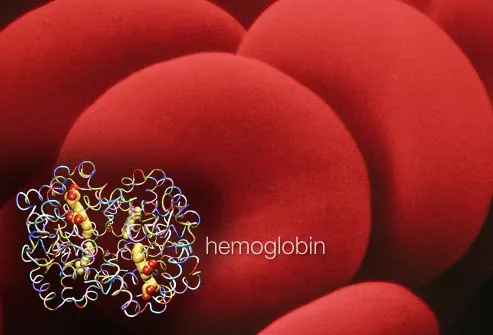
What Is Anemia?
Anemia develops when you don't have enough robust, healthy red blood cells to carry oxygen throughout your body. The blood cells may lack enough hemoglobin, the protein that gives blood its red color. Anemia affects about 7% of the US population and is more common in women of child-bearing age, the elderly, women of color and Hispanic women.
Swipe to advance

2
/
23
Symptoms of Anemia
If you're often tired even though you've slept well or you lack the energy for normal activities, you may have anemia. It can be an underlying cause of memory or mood problems. Symptoms range from none to mild to life-threatening and may include:
- Weakness
- Dizziness
- Pale skin
- Headache
- Numbness or coldness in hands and feet
- Low body temperature
Swipe to advance

3
/
23
Heart-Related Symptoms
People with anemia have less oxygen in their blood, which means the heart must work harder to pump enough oxygen to their organs. Cardiac-related symptoms include arrhythmia (an abnormal heart rhythm), shortness of breath, and chest pain.
Swipe to advance

4
/
23
Anemia in Children
Many preschool children are anemic, most often because they don't have enough iron in their diet. People who have iron-deficiency anemia may feel the urge to eat inappropriate things like dirt, clay, ice, or starch, a behavior called pica. Pediatricians typically test all children for anemia at 12 months. Without treatment, a severe case of anemia could permanently affect brain development.
Swipe to advance

5
/
23
Anemia Risk Factors
Women and people with chronic diseases have the greatest risk of anemia. When women lose blood in heavy menstrual periods, they may become anemic. Pregnancy also causes changes in a woman's blood volume that can result in anemia. Chronic diseases such as kidney disease can affect the body's ability to make red blood cells. A diet low in iron, folate, or vitamin B12 also increases your risk. And some types of anemia are hereditary.
Swipe to advance

6
/
23
Teens and Anemia
If your teen often is fatigued, anemia might be a cause. Teens are at risk of iron-deficiency anemia because of their sudden growth spurts. Teen girls also are more prone to anemia because of their menstrual periods.
Swipe to advance

7
/
23
Cause: Low Iron Intake
A diet that's low in iron can cause anemia. Iron from plants and supplements isn't absorbed as well as the iron in red meat. Digestive concerns such as Crohn's disease, celiac disease, or even having gastric bypass surgery can interfere with iron absorption. And some foods and medicines can hinder iron uptake when taken with iron-rich foods. They include:
- Dairy
- Other calcium-rich foods
- Calcium supplements
- Antacids
- Coffee
- Tea
Swipe to advance

8
/
23
Cause: Vitamin Deficiency
The body needs both vitamin B12 and folate to make red blood cells. A diet too low in these vitamins sometimes can cause anemia. An autoimmune disorder or digestive problem also can prevent your body from absorbing enough B12. Animal-based foods and fortified breakfast cereals are good sources of B-12. Folate is in leafy green vegetables, fruits, dried beans, and peas, and is added to breads, pastas, and cereals as folic acid.
Swipe to advance
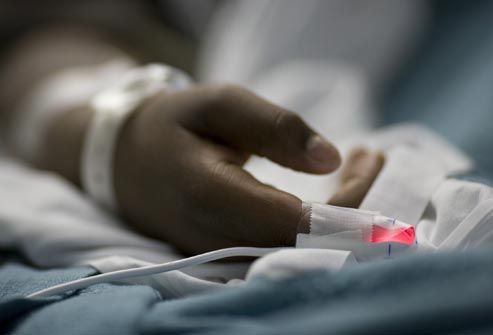
9
/
23
Cause: Illness
Chronic illness or infection can cause the body to make fewer red blood cells. This can result in a mild drop in hemoglobin. If you have significant blood loss, then you may develop iron-deficiency anemia. And some drugs and medical treatments can also put you at risk for anemia. Consult your doctor to see if you need iron or other supplements.
Swipe to advance
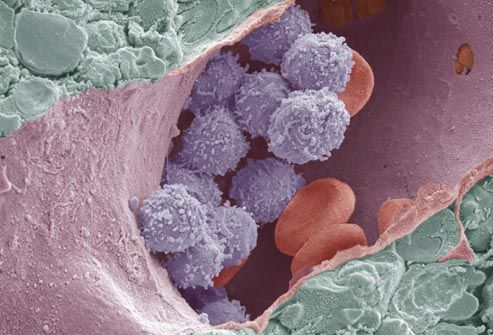
10
/
23
Cause: Aplastic Anemia
Aplastic anemia is a rare disorder in which the bone marrow doesn't make enough blood cells to supply the body. It affects only about two in one million people. It can be caused by high doses of radiation, certain chemical exposures, viruses, or an autoimmune disorder in which your body attacks the bone marrow. Some cases are inherited. In severe cases, people need blood transfusions or even a bone marrow transplant.
Swipe to advance
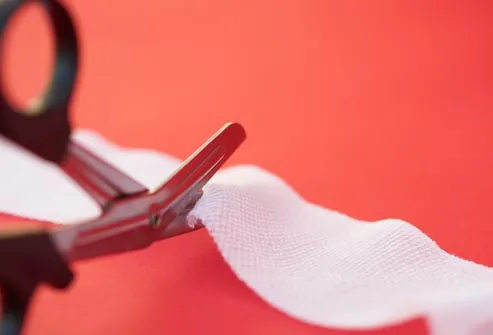
11
/
23
Cause: Blood Loss
Losing too many red blood cells is a common cause of anemia. Heavy menstruation, ulcers, injury, or surgery can cause enough blood loss to lead to iron-deficiency anemia. Women who have heavy menstrual periods should be tested for anemia.
Swipe to advance

12
/
23
Cause: Faulty Blood Cell Mechanics
Inherited disorders can affect your body's production of red blood cells. Thalassemias cause the body to make fewer healthy red blood cells and less hemoglobin -- and may be treated with blood transfusions as well as other treatments. Among people with hemolytic anemia, red blood cells are destroyed and cleaned out of the bloodstream too quickly.
Swipe to advance
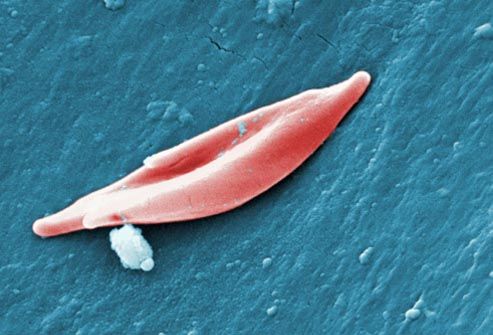
13
/
23
Sickle Cell Anemia
Sickle cell anemia is an inherited disorder in which the body produces an abnormal form of hemoglobin. This causes red blood cells to change from round to a sickle shape and become stuck together. That can make it difficult for them to pass through blood vessels, leading to pain and damage to body tissues. The red blood cells also die more quickly than normal red blood cells. In the U.S., sickle cell anemia is more common among African-Americans and Hispanics.
Swipe to advance
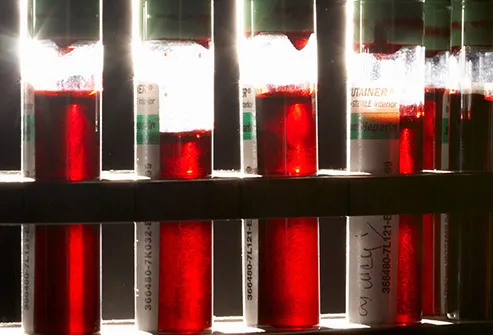
14
/
23
Diagnosis: Complete Blood Count
A complete blood count test will check your levels of red blood cells, white blood cells, platelets, and hemoglobin. It will also check other factors such as average size, variability in size, volume, and hemoglobin concentration of red blood cells. If you have iron-deficiency anemia, your red blood cells may be smaller than normal. Your health care provider also may ask about your symptoms, medicines you take, and your family history.
Swipe to advance
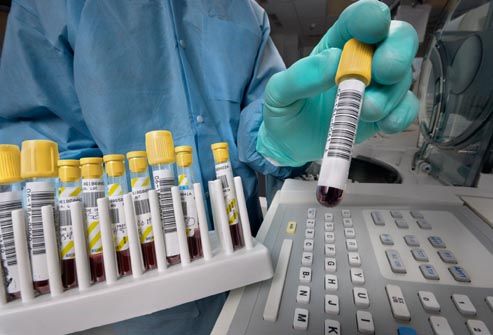
15
/
23
Diagnosis: Other Blood Tests
If the complete blood count shows that you have anemia, you may have additional blood tests. Your blood cells may be checked for an abnormal appearance. Hemoglobin electrophoresis detects the type of hemoglobin in your blood. A reticulocyte count tests how quickly your bone marrow makes new red blood cells. Iron studies may be ordered to measure iron stores in your body, as well as iron levels in your blood.
Swipe to advance
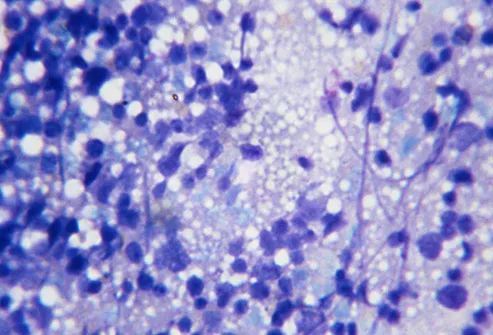
16
/
23
Diagnosis: Bone Marrow Test
If your body is producing too few or too many blood cells or their structure appears abnormal, you may need a bone marrow test. Bone marrow, the spongy tissue inside bones, contains stem cells that turn into blood cells. Your doctor will remove a small sample of bone marrow through a needle. The procedure takes about 30 minutes and will cause some soreness.
Swipe to advance
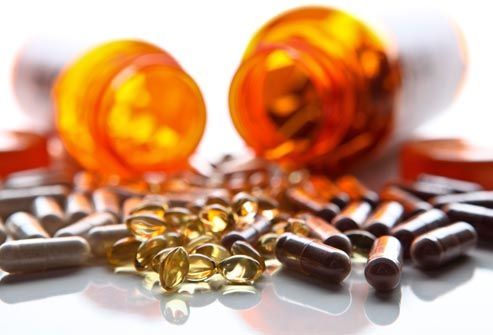
17
/
23
Treatment: Iron
Iron pills are often needed for anemia that's caused by a deficiency in that mineral. Ferrous iron is more easily absorbed than ferric iron. It's best taken with food, especially orange juice and other foods rich in vitamin C. But don't mix your iron pill with calcium, coffee, or tea, which can block absorption. And never take iron without a doctor's order or let children near the pills. An iron overdose can be dangerous. Some people may need folic acid or vitamin B12 supplements, too.
Swipe to advance

18
/
23
Iron and Pregnancy
About 40% of pregnant women have iron-deficiency anemia. Pregnant women should get at least 30 milligrams of iron each day in their diet. Your prenatal vitamin also may contain iron. You may be tested for anemia at your first prenatal visit and after delivery.
Swipe to advance
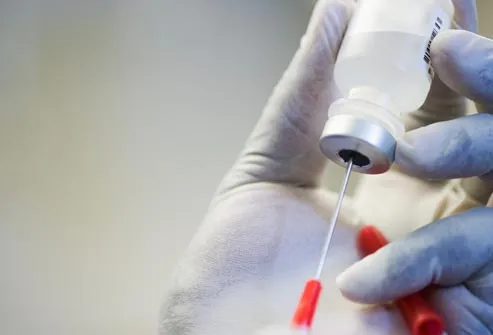
19
/
23
Treatment: Medicines
Drugs for anemia often treat the root illness. So in some cases, where the anemia is due to chronic kidney disease, an injection of the hormone erythropoietin (EPO) may be needed. If an autoimmune disorder causes your body to attack its own red blood cells, then a corticosteroid, such as prednisone, can slow the attack and help correct anemia. In sickle cell anemia, two drugs are approved to treat sickle cell anemia. Hydroxyurea, a cancer drug, and a new drug called L-glutamine oral powder (Endari) are effective in reducing complications and thus, hospitalizations.
Swipe to advance
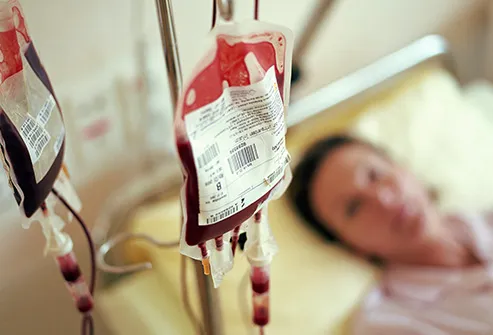
20
/
23
Treatment: Procedures
If you have severe anemia, you may need a transfusion of blood that matches your type. When the body's production of red blood cells doesn't work right, anemia caused by serious illnesses such as cancers and aplastic anemia may be treated or cured with a transplant. In these cases, bone marrow from a donor replaces the person's faulty bone marrow, so the body can start producing healthy blood cells. When blood cells are destroyed too quickly, blood plasma treatments or even removing the spleen may be needed.
Swipe to advance
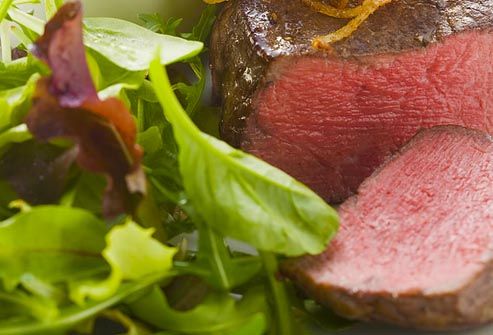
21
/
23
Preventing Anemia
You can prevent some types of anemia with a healthy diet. Foods containing iron include lean red meat, liver, fish, tofu, lentils and beans, dark green leafy vegetables, and dried fruits. Also eat foods with vitamin B12 and folic acid, such as eggs and dairy products, spinach, and bananas. Many breads, cereals, and other foods are fortified with all three key nutrients: iron, B12, and folic acid. Vitamin C, found in citrus, other fruits, and vegetables, will help your body absorb iron.
Swipe to advance

22
/
23
Iron Overload
Too much iron can cause serious problems. Iron overload can be a result of repeated blood transfusions or an inherited condition, but taking too much iron also is a risk. The many symptoms of iron overload are related to excess iron depositing into organs and causing problems in the liver, heart, and pancreas. Iron levels can be reduced through phlebotomy (blood removal) or medications.
Swipe to advance

23
/
23
Living With Anemia
Treating your anemia and eating a well-rounded diet can give you more energy and enhance your life. Most people can manage their anemia through a healthy diet and iron or vitamin supplements, if a doctor says they are deficient in one of the key nutrients. If you have a chronic disease, then good management of your condition also will help you prevent or manage anemia.
Swipe to advance
- Get link
- X
- Other Apps